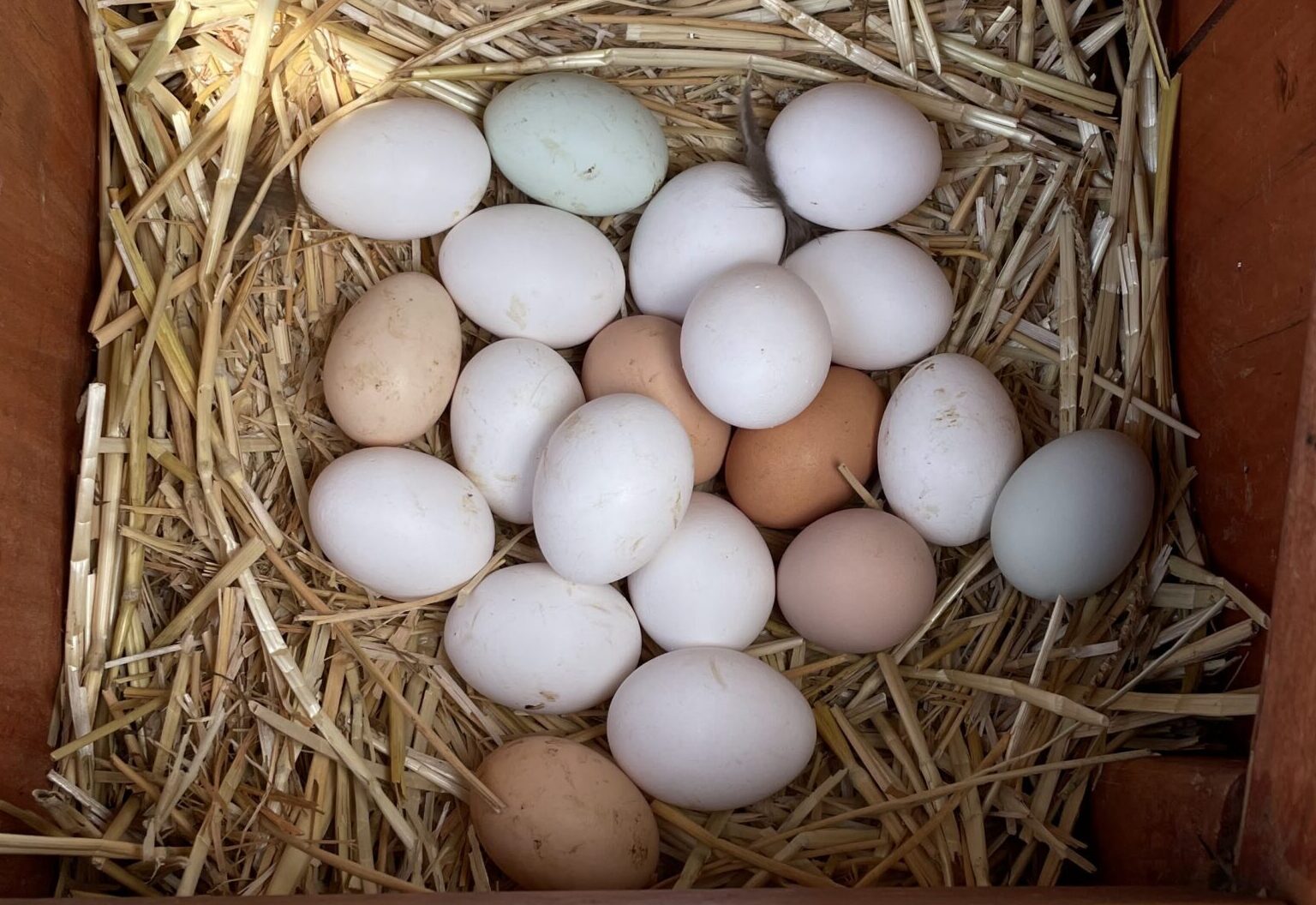Passover is a Jewish holiday festival celebrating spring and the Jewish people’s liberation from slavery in Egypt and marked by many rituals including communal meals called seders and by not eating chametz – bread or other leavened products.
Each year growing up, I would fondly recall the traditional story of why the Israelites (Children of Israel) made matzah, traditional flat bread eaten during the 8-day holiday of Passover. As the story goes, they were racing to get out of Egypt on the night of their liberation from slavery, the night of being “passed over” and sent to freedom, and they didn’t have time to wait for their bread to rise. This story originates in the Torah (the Jewish Bible) and it is one understanding matzah. But like any truth one hears many times, it can become rote; and once that happens, the learning stops.
But this year, my first year celebrating Passover as Director of Jewish Life at Coastal Roots Farm, I have become lit up inside with a new way of understanding matzah. Not different, and not contradictory to the story I grew up with. Instead, like an archeological site or a delicious seven-layer cake (maybe this one kosher for Passover!) when something new is understood within Jewish tradition, it joins the old and does not replace it. Judaism isn’t a religion of right or wrong, of this interpretation over that one. Instead, multiple understandings enrich and uplift us, and we do not have to choose.
And my new understanding? That matzah isn’t only about rushing and therefore not making bread. It isn’t the result of lack of time. It is about readiness.
The Children of Israel were collectively so present that Passover night, so on the balls of their feet ready for the transformation they were about to embark on, that waiting - for anything - was simply not in the cards. This idea transforms matzah – that multi-faceted symbol and crunchy reality that is called both “the bread of poverty” and “the bread of redemption” by the tradition – from a thing of lack to a thing ripe with potential.
I have come upon this new understanding because of the readiness I see all around me on our Farm. On one hand, we are a place where the regenerative farming cycles we practice require us to be humble, patient, and always listening to the earth. At the same time, “readiness” is everywhere – my Farm Stand colleagues who seize the moment when someone’s checking out to make a personal connection, if just for a moment; the way our farmers quickly rally when the strong rains come in order to preserve our fledgling seeds and growing crops; the upturned faces of our Farm Camp children when a beetle, suddenly arrived, is not only welcomed but taught about right then by our Outdoor Educators. It is as if we are ripe not only with food but with readiness.
A long time ago, Shakespeare’s Hamlet - a very different hero than Moses – proclaimed that “the readiness is all.” I believe that is particularly true in this era of human history in which the climate crisis looms so large. We need, all of us, to be able act quickly and decisively without waiting for the metaphoric bread to rise or the path to become clear. Whatever we can do – whether composting, protesting, writing a climate song, divesting funds from big banks, planting herbs on the windowsill, or reaching out to connect with neighbors for the first time – let’s do it now. Let’s do it without waiting to feel hopeful and without being particularly convinced it can help. The Children of Israel didn’t know where they were heading either. They only knew to be ready.
Happy spring and happy Passover to one and all!
Written by Rebecca Joy Fletcher, Director of Jewish Life
______________________________________________________________________________
And if you are looking for some cool ways to explore or celebrate Passover, check out these great things from some of our friends:
